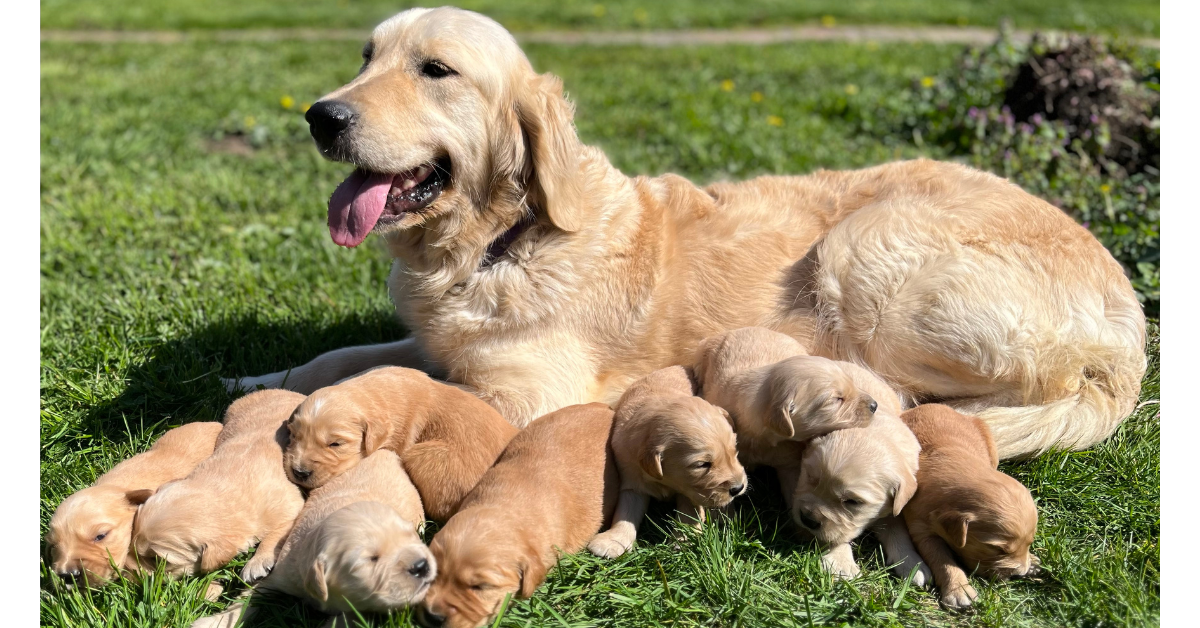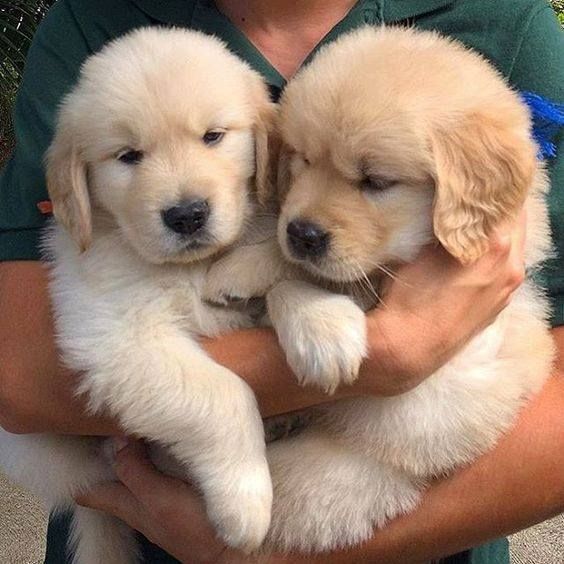Golden Retriever puppies for sale in oklahoma
Available Male and Female Golden Retriever Puppies
They are known for their friendly, intelligent, and loyal nature, making them one of the most popular and well-loved dog breeds in the world. These puppies are the perfect choice for families looking for a fun-loving and affectionate companion. With their golden coats, warm personalities, and gentle demeanor, Golden Retrievers are sure to win your heart.
Golden Retriever puppies for sale in maryland
Both male and female Golden Retriever puppies are equally charming, with the males typically being slightly larger and more robust, while the females tend to be a bit more agile and graceful. Regardless of gender, both are social, playful, and eager to please their owners, making them excellent family pets and companions. They thrive on human interaction and are great with children, other pets, and visitors.
Golden Retriever puppies for sale in ohio

Golden Retriever puppies for sale in new orleans
Retrievers are active and energetic dogs that enjoy outdoor play and exercise. Whether it’s playing fetch, swimming, or running, these puppies are always ready for fun. They also have a calm and gentle side and enjoy spending quiet time with their families. Their intelligence and eagerness to learn make them highly trainable, excelling in obedience training, agility, and other dog sports.
Golden Retriever puppies for sale in newyork
These Golden Retriever puppies will come with their first vaccinations, deworming, and a full health check to ensure they are happy and healthy. They are ready to join a loving home and will quickly become an inseparable part of your family.
Golden Retriever puppies for sale in texas
The Ultimate Guide to Raising Golden Retriever Puppies
Golden Retrievers are one of the most beloved dog breeds, known for their intelligence, affectionate nature, and boundless energy. As a breeder, providing the best start in life for these puppies is crucial to ensure they grow into well-adjusted, healthy dogs. This guide covers everything you need to know about raising Golden Retriever puppies.
Understanding Golden Retriever Characteristics
Golden Retrievers are medium-to-large-sized dogs with friendly, eager-to-please personalities. They are highly social, making them excellent family pets, service dogs, and working dogs. Due to their active and intelligent nature, early training and proper care are essential.
Preparing for Golden Retriever Puppies
Before your litter arrives, ensure you have:
- A Comfortable Whelping Area: Provide a warm, safe, and easily accessible space for the mother and puppies.
- Essential Supplies: Soft bedding, heating pads, high-quality food, and puppy-safe toys.
- Veterinary Support: Regular check-ups for the mother and puppies are essential to monitor their health and development.
Caring for Golden Retriever Puppies
- Nutrition: The mother should receive a high-quality diet during pregnancy and lactation. Puppies should nurse for the first few weeks before gradually transitioning to solid food around 4 weeks of age.
- Temperature Control: Keep the whelping area warm to ensure puppies stay comfortable, as they cannot regulate their body temperature initially.
- Hygiene and Cleanliness: Clean the whelping area regularly to prevent infections and ensure a healthy environment.
- Health Monitoring: Golden Retrievers are prone to hip dysplasia, heart conditions, and allergies. Early vet visits and proper care are crucial.
Socialization and Training
- Early Exposure: Introduce puppies to household sounds, people, and other pets to help them develop confidence.
- Basic Obedience Training: Start with simple commands like “sit,” “stay,” and “come” using positive reinforcement techniques.
- Mental and Physical Stimulation: Golden Retrievers are intelligent and active, so provide toys, puzzles, and supervised playtime.
Grooming and Care
- Coat Maintenance: Golden Retrievers have thick double coats that require regular brushing to reduce shedding and prevent matting.
- Ear Cleaning: Check and clean their ears regularly to prevent infections.
- Nail Trimming: Trim nails as needed to maintain comfort and prevent joint stress.
Finding the Right Homes
Golden Retrievers thrive in active households where they receive plenty of attention and exercise. Carefully screen potential adopters to ensure they understand the breed’s needs and are prepared to provide lifelong care.
Conclusion
Breeding and raising Golden Retriever puppies is a rewarding experience that requires dedication and knowledge. By focusing on health, training, and responsible placements, you help ensure the well-being of this wonderful breed.
For more information on Golden Retriever breeding or to share your experiences, feel free to reach out!
The Ultimate Guide to Feeding a Golden Retriever Puppy
Proper nutrition is crucial for the healthy growth and development of a Golden Retriever puppy. As a breeder, ensuring that puppies receive a well-balanced diet from birth to adulthood helps prevent health issues and promotes strong bones, a shiny coat, and a robust immune system. This guide provides detailed information on how to feed Golden Retriever puppies at different stages of their early life.
1. Newborn Stage: Nursing and Supplementation
- Mother’s Milk: For the first few weeks, the mother’s milk provides all the essential nutrients and antibodies puppies need.
- Bottle Feeding: If the mother is unable to nurse, use a high-quality puppy milk replacer recommended by a veterinarian.
- Feeding Frequency: Newborns should be fed every 2-3 hours to ensure proper growth and hydration.
2. Transition to Solid Food (Weaning Stage)
- When to Start: At around 3-4 weeks of age, start introducing softened puppy food.
- Weaning Process: Mix high-quality puppy kibble with warm water or puppy milk replacer to create a soft, mushy texture.
- Gradual Introduction: Offer small amounts several times a day while continuing to allow nursing until around 6-8 weeks of age.
3. Choosing the Right Puppy Food
- High-Quality Ingredients: Select a well-balanced diet rich in animal protein, healthy fats, and essential vitamins.
- Avoid Fillers: Avoid foods containing corn, wheat, or soy, which may cause digestive issues.
- DHA and Omega-3 Fatty Acids: These nutrients support brain development and a healthy coat.
- Calcium and Phosphorus Balance: Golden Retrievers are prone to joint issues, so their diet should have an appropriate calcium-to-phosphorus ratio.
4. Feeding Schedule and Portion Control
- 8-12 Weeks: 4 small meals per day.
- 3-6 Months: 3 meals per day.
- 6-12 Months: 2 meals per day.
- Avoid Overfeeding: Golden Retrievers love to eat, but excess weight can lead to joint problems and obesity.
5. Hydration and Treats
- Fresh Water: Always provide clean, fresh water.
- Limit Treats: Use treats in moderation and opt for healthy options like carrots, apples (without seeds), or lean protein snacks.
- Avoid Harmful Foods: Do not feed chocolate, grapes, onions, garlic, or excessive fatty foods.
6. Common Feeding Challenges
- Sensitive Stomach: Some Golden Retriever puppies may experience diarrhea or vomiting due to dietary changes. Always transition foods gradually.
- Food Allergies: If you notice skin irritation, excessive itching, or digestive issues, consult your veterinarian for possible food sensitivities.
- Picky Eaters: If a puppy refuses to eat, try mixing in a small amount of wet food or warm water to enhance flavor.
7. Transitioning to Adult Food
- When to Switch: At around 12 months of age, gradually transition to adult dog food.
- Slow Change: Mix increasing amounts of adult food with puppy food over a week to prevent digestive upset.
Conclusion
Providing proper nutrition for a Golden Retriever puppy ensures they grow into a strong and healthy adult dog. By feeding a well-balanced diet, following a consistent feeding schedule, and monitoring for any dietary issues, you set your puppies up for a lifetime of good health.
For more feeding tips or to share your experience, feel free to reach out!



Reviews
There are no reviews yet.